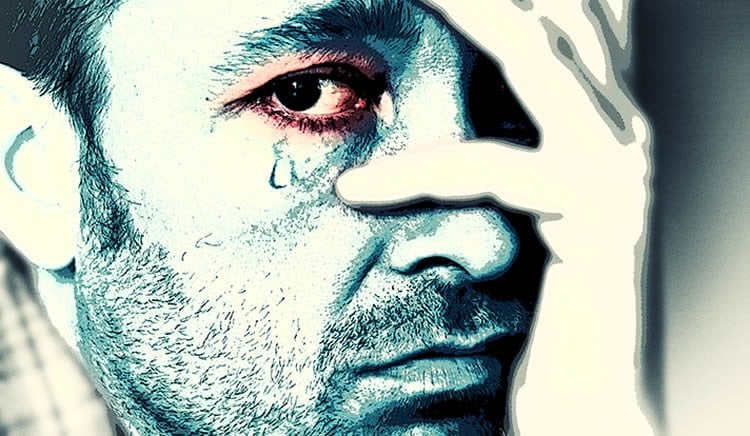Summary: According to researchers, when a bad decision directly affects a psychopath, they experience regret but they do not use the experience as a lesson to direct their choices in the future.
Source: Yale.
Psychopaths do experience regret, particularly when their bad decisions affect them directly — yet they don’t use that experience to inform their future choices, according to a new study published the week of Nov. 28 in the journal Proceedings of the National Academy of Sciences.
“The popular view of psychopaths is that they are cold, callous, and simply don’t care what happens to themselves or anybody else,” said Yale psychologist Arielle Baskin-Sommers, co-author of the paper. “But this research shows they can experience negative emotions — if they are impacted by the situation. ”
Baskin-Sommers and co-author Joshua Buckholtz of Harvard University evaluated the responses of 62 men, some of whom scored high on psychopathy measures, to different situations. They found that psychopathic subjects did experience regret, for instance, when they discovered that they would have made money if they had made a different decision in a gambling scenario. But, they did not use that experience to inform later decisions. This inability to learn from their mistakes predicted the number of times the subjects had been incarcerated.
Baskin-Sommers said this form of regret does not imply remorse for actions that harmed other people — an absence that is a hallmark of psychopaths.

“Regret is self-focused, whereas remorse involves another,” she said.
However, if psychopaths possess a sense of regret, it might be possible to help devise a strategy to harness that experience and decrease recidivism among psychopathic criminals, who make up a disproportionate percentage of repeat offenders, Baskin-Sommers said.
“If they don’t experience any regret for their actions, we don’t have much of a chance, but these findings suggest that there is something to work with,” she said.
Source: Bill Hathaway – Yale
Image Source: NeuroscienceNews.com image is adapted from the Yale press release.
Original Research: Full open access research for “Psychopathic individuals exhibit but do not avoid regret during counterfactual decision making” by Arielle Baskin-Sommers, Allison M. Stuppy-Sullivan, and Joshua W. Buckholtz in PNAS. Published online November 28 2016 doi:10.1073/pnas.1609985113
[cbtabs][cbtab title=”MLA”]Yale. “Psychopaths Can Regret Bad Decisions, But Don’t Learn From Them .” NeuroscienceNews. NeuroscienceNews, 29 November 2016.
<https://neurosciencenews.com/regret-learning-psychopaths-5627/>.[/cbtab][cbtab title=”APA”]Yale. (2016, November 29). Psychopaths Can Regret Bad Decisions, But Don’t Learn From Them . NeuroscienceNews. Retrieved November 29, 2016 from https://neurosciencenews.com/regret-learning-psychopaths-5627/[/cbtab][cbtab title=”Chicago”]Yale. “Psychopaths Can Regret Bad Decisions, But Don’t Learn From Them .” https://neurosciencenews.com/regret-learning-psychopaths-5627/ (accessed November 29, 2016).[/cbtab][/cbtabs]
Abstract
Psychopathic individuals exhibit but do not avoid regret during counterfactual decision making
Psychopathy is associated with persistent antisocial behavior and a striking lack of regret for the consequences of that behavior. Although explanatory models for psychopathy have largely focused on deficits in affective responsiveness, recent work indicates that aberrant value-based decision making may also play a role. On that basis, some have suggested that psychopathic individuals may be unable to effectively use prospective simulations to update action value estimates during cost–benefit decision making. However, the specific mechanisms linking valuation, affective deficits, and maladaptive decision making in psychopathy remain unclear. Using a counterfactual decision-making paradigm, we found that individuals who scored high on a measure of psychopathy were as or more likely than individuals low on psychopathy to report negative affect in response to regret-inducing counterfactual outcomes. However, despite exhibiting intact affective regret sensitivity, they did not use prospective regret signals to guide choice behavior. In turn, diminished behavioral regret sensitivity predicted a higher number of prior incarcerations, and moderated the relationship between psychopathy and incarceration history. These findings raise the possibility that maladaptive decision making in psychopathic individuals is not a consequence of their inability to generate or experience negative emotions. Rather, antisocial behavior in psychopathy may be driven by a deficit in the generation of forward models that integrate information about rules, costs, and goals with stimulus value representations to promote adaptive behavior.
“Psychopathic individuals exhibit but do not avoid regret during counterfactual decision making” by Arielle Baskin-Sommers, Allison M. Stuppy-Sullivan, and Joshua W. Buckholtz in PNAS. Published online November 28 2016 doi:10.1073/pnas.1609985113






